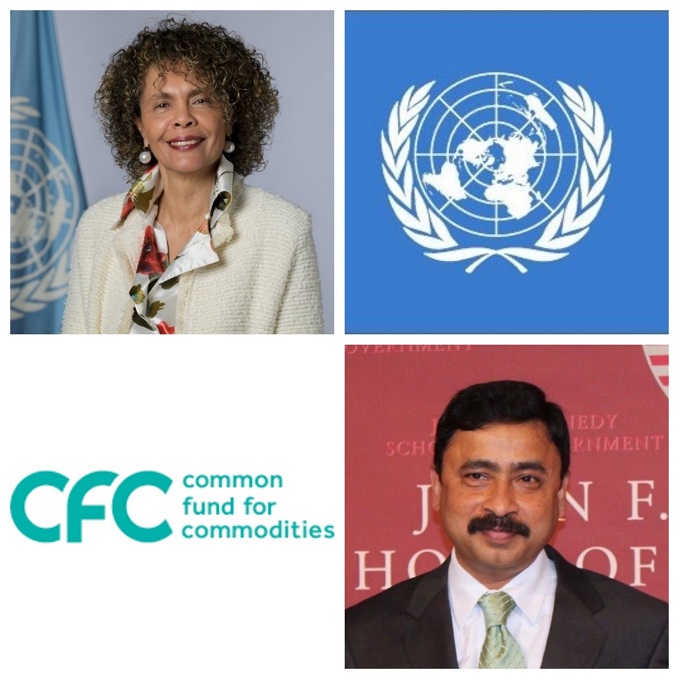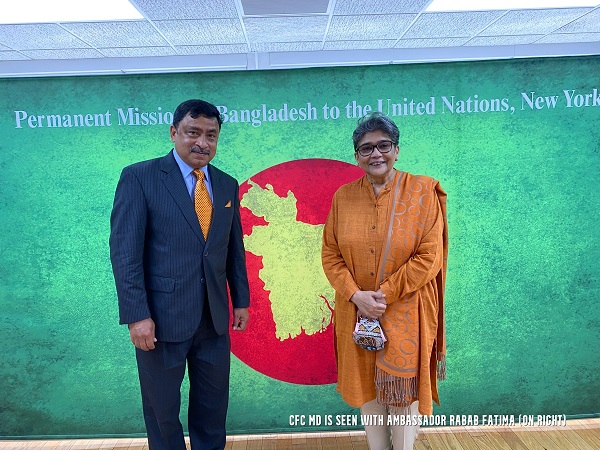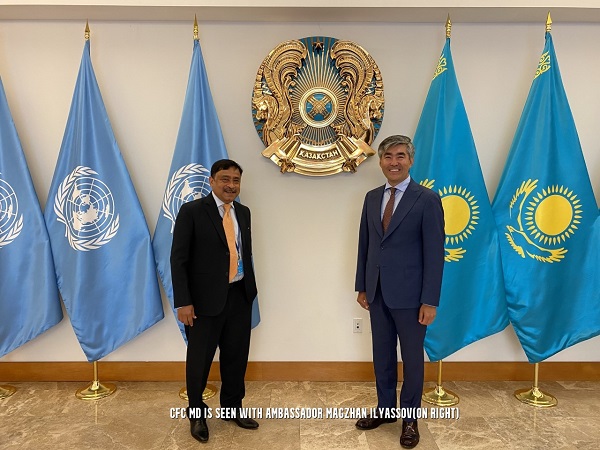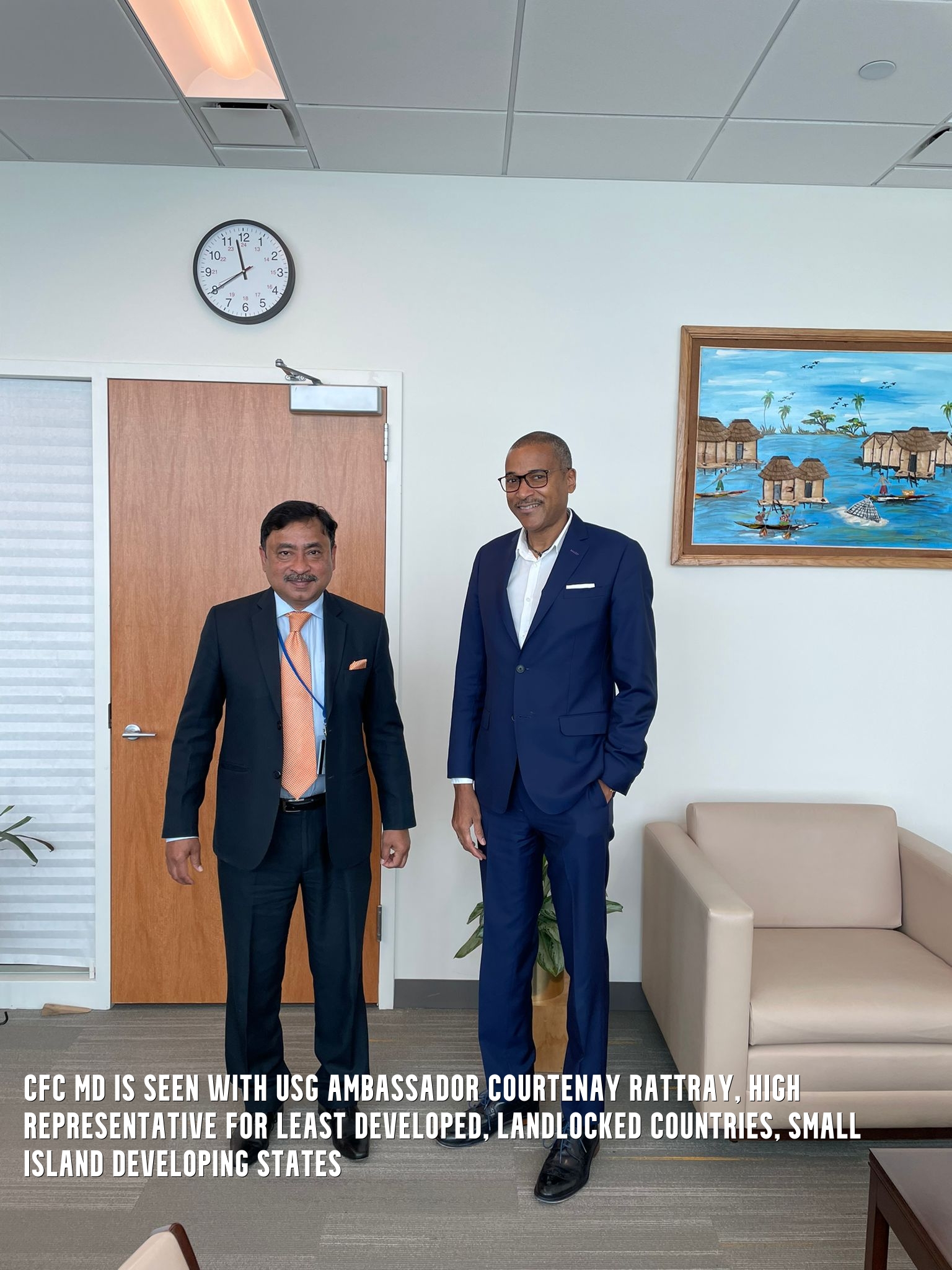CFC urges UN System to explore options for cheaper finance
With over 30 years of experience in addressing issues surrounding commodity dependency in developing countries, Managing Director Ambassador Sheikh Mohammed Belal undertook a visit to New York from 9-12 August 2021 to consult experts in the United Nations system on how finance for sustainability could be made cheaper to address the problem of commodity dependency in the developing world. These discussions were centered around the modalities for expedited graduation of the LDCs. This focus is crucial as poverty is much more entrenched around commodities in the LDCs.
The issue of CFC’s engagement with the UN system and completion of affiliation was also discussed. Necessary follow-up action would be undertaken to complete the process that was initiated by CFC years earlier.
As the Office of the UN-OHRLLS (United Nations Office of the High Representative for the Least Developed Countries, Landlocked Developing Countries and Small Island Developing States) is working on the roadmap for the next ten years as a successor plan to the Istanbul Programme of Action (IPoA), CFC would like to see the following points are duly considered and addressed in the Doha Programme of Action:
- CFC already committed 16 million USD for the Vienna Programme for the Landlocked Least Developed Countries (LLDCs) and assured to do more when the proposed CIIF (Commodity Impact Investment Facility) is successfully activated in the CFC. Support from the UN system is requested to make the CIIF a success;
- Poverty is much more entrenched around the agri-commodities and, therefore, there has to be a dedicated program for different agri-commodities in the developing world;
- Finance for commodity value chain upgrading and diversification needs to be made cheaper so that smallholder farmers and SMEs can afford this finance without undue stress;
- The time has come to devote due attention to the concept of “small is big”, where projects with limited ticket size dedicated to smallholders and SMEs of agri-commodities are earmarked as a priority;
- Concepts like “public credit guarantee [1]” need to be significantly scaled up under prevalent “aid for trade” and other bilateral donor assisted projects dedicated to the alleviation of poverty;
- Innovative proposals like first loss guarantee, private finance and new arrangements like that of MIGA, interest free loans under sukuk, where such guarantee could be extended to projects of smaller ticket size, is urgently requested;
- The emerging revolution of “impact investment” needs to be availed through an innovative program of blended finance to make more resources available at the grassroot level;
- Without strategic approaches to address issues around gender and climate action, the mission for sustainable and comprehensive development shall remain incomplete and challenging;
- CFC is presently working to bring more focused elements in its project implementation to address the problem of climate challenges and request support from the UN system for necessary training and capacity building;
- The UN system should endeavor to devise a system to “walk back” along the value chain so that the issue of disproportionately and painfully low income at the producers level is duly addressed;
- With Africa being the continent of the future as well as a continent where CFC has been engaged significantly for the alleviation of poverty, Africa focussed projects have to be scaled up in coordination with the UN system and agencies;
- CFC proposed and encouraged the UN system to provide assistance so that technologies like blockchain would be part of the solution of its programs involving projects from “field to fork” to bring more transparency along the value chain with traceability from producers to the consumers;
- More engagement with the youth, including millenniums of today, who are much more aware of the urgency of sustainability, needs to be made part of this mission of making the value chain transparent using their purchasing power as conscientious consumers.
The experts in the UN system advised CFC to consider more engagements with the UN system with joint initiatives to demonstrate how model projects could make a difference in the lives and livings of smallholders. The Office of the Special Adviser on Africa to the UN Secretary-General offered to partner with CFC for publication of such projects so that others would get interested to replicate such ideas in their countries.
The CFC’s sustained efforts for projects involving cross border trade like COOPAC (between the CFC, Congo and Rwanda involving the trading of premium grade coffee) and Olivado (producer of avocado oil in both Kenya and Tanzania) were highly appreciated. The idea of imparting transparency in the value chain, with innovation, technology and creativity, was highly encouraged. It was noted that the CFC’s determination to bring transparency along the value chain to provide more income to the smallholder farmers and SMEs is essentially a priority for the UN system’s interest in order to provide higher income to the millions of smallholder farmers to alleviate themselves from out of poverty. The CFC reiterated its commitment to remain focused on the issue of poverty alleviation using innovations and creativity in the LDCs, LLDCs and SIDS.
During the visit Ambassador Belal had the opportunity to meet and consult with:
- Courtenay Rattray, Under-Secretary-General/High Representative, UN-OHRLLS;
- Cristina Duarte, Under-Secretary-General, Special Adviser on Africa to the UN Secretary General;
- Ambassador Munir Akram, Permanent Mission of Pakistan to the UN and immediate past President of ECOSOC;
- Ambassador Rabab Fatima, Permanent Mission of Bangladesh to the UN and Co-Chair of LDC5;
- Ambassador Magzhan Ilyassov, Permanent Mission of Kazakhstan to the UN; and Chairperson of the LLDCs;
- Hamid Rashid, Chief, Development Research Branch, Global Economic Monitoring Branch, Department of Economic and Social Affairs.
[1] Credit guarantee schemes are mechanisms through which an external third party, known as the guarantor, promises to repay the lender all or part of the loan if the borrower defaults. When a credit is guaranteed, the creditor faces lower risk, and can offer better lending conditions and require lower collateral.


H.E. Mr. Munir Akram, Permanent Mission of Pakistan to the UN (on right)

H.E. Ms. Rabab Fatima, Permanent Mission of Bangladesh to the UN (on right)

H.E. Mr. Magzhan Ilyassov, Permanent Mission of Kazakhstan to the UN (on right)

